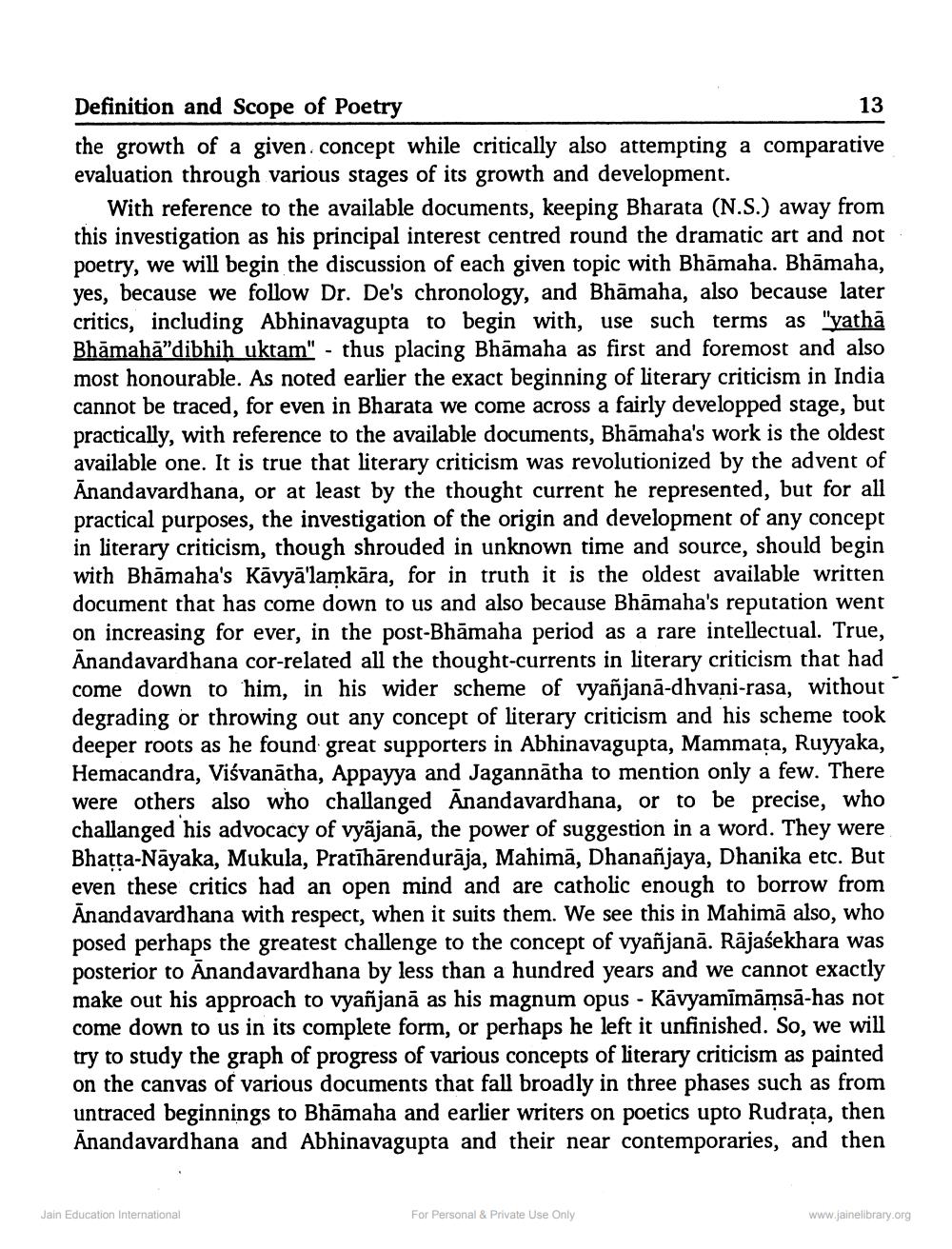________________
13
Definition and Scope of Poetry the growth of a given concept while critically also attempting a comparative evaluation through various stages of its growth and development.
With reference to the available documents, keeping Bharata (N.S.) away from this investigation as his principal interest centred round the dramatic art and not poetry, we will begin the discussion of each given topic with Bhāmaha. Bhāmaha, yes, because we follow Dr. Dels chronology, and Bhāmaha, also because later critics, including Abhinavagupta to begin with, use such terms as "yathā Bhāmahā”dibhih uktam" - thus placing Bhāmaha as first and foremost and also most honourable. As noted earlier the exact beginning of literary criticism in India cannot be traced, for even in Bharata we come across a fairly developped stage, but practically, with reference to the available documents, Bhāmaha's work is the oldest available one. It is true that literary criticism was revolutionized by the advent of Anandavardhana, or at least by the thought current he represented, but for all practical purposes, the investigation of the origin and development of any concept in literary criticism, though shrouded in unknown time and source, should begin with Bhāmaha's Kävyā'lamkāra, for in truth it is the oldest available written document that has come down to us and also because Bhāmaha's reputation went on increasing for ever, in the post-Bhamaha period as a rare intellectual. True, Anandavardhana cor-related all the thought-currents in literary criticism that had come down to him, in his wider scheme of vyañjanā-dhvani-rasa, without degrading or throwing out any concept of literary criticism and his scheme took deeper roots as he found great supporters in Abhinavagupta, Mammața, Ruyyaka, Hemacandra, Visvanātha, Appayya and Jagannātha to mention only a few. There were others also who challanged Anandavardhana, or to be precise, who challanged his advocacy of vyājanā, the power of suggestion in a word. They were Bhatta-Nāyaka, Mukula, Pratīhārendurāja, Mahimā, Dhananjaya, Dhanika etc. But even these critics had an open mind and are catholic enough to borrow from Anandavardhana with respect, when it suits them. We see this in Mahimā also, who posed perhaps the greatest challenge to the concept of vyañjanā. Rājasekhara was posterior to Anandavardhana by less than a hundred years and we cannot exactly make out his approach to vyañjanā as his magnum opus - Kāvyamīmāṁsā-has not come down to us in its complete form, or perhaps he left it unfinished. So, we will try to study the graph of progress of various concepts of literary criticism as painted on the canvas of various documents that fall broadly in three phases such as from untraced beginnings to Bhāmaha and earlier writers on poetics upto Rudrata, then Anandavardhana and Abhinavagupta and their near contemporaries, and then
Jain Education International
For Personal & Private Use Only
www.jainelibrary.org




